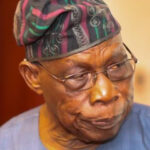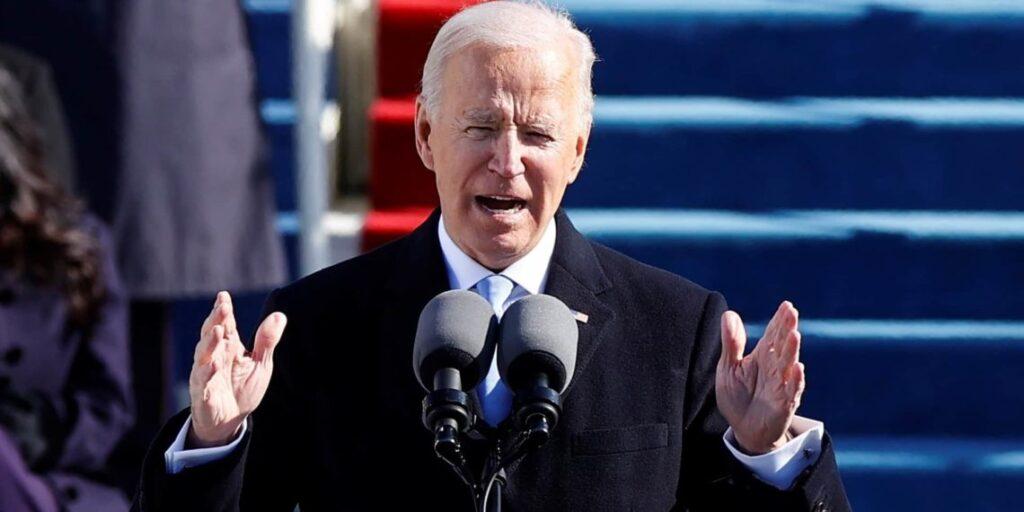With Joe Biden out of the 2024 presidential race, the question is whether — and how much — chaos Democrats will face in picking a successor to take on Donald Trump.
Biden supported Vice President Kamala Harris shortly after announcing he would step aside.
“Today I want to offer my full support and endorsement for Kamala to be the nominee of our party this year,” he said in a statement on X.
“Democrats — it’s time to come together and beat Trump. Let’s do this,” Biden said.
There still are steps for the party to make its official choice. Here’s a quick guide to what happens next:
NOW THAT BIDEN IS OUT, WHEN WILL A NEW CANDIDATE BE CHOSEN?
The new party nominee could be formally chosen in early August, when Democrats could take a virtual roll call. A majority of delegates would be needed to pick a candidate to face Trump. Some Democrats have floated the idea of what they call a “mini-primary.” Details of precisely what would mean are unclear, and chances are voters would not be able to cast ballots.
One idea is that potential candidates would participate in forums prior to the convention. Or the choice could wait until the party’s national convention next month. It’s unlikely there would be an open convention, since Harris has support from Biden and others within the party.
“The party would unify around Harris. She’s the anointed successor,” Darrell West, a political analyst at the nonpartisan Brookings Institution, predicted earlier this month.
HOW WOULD A NEW NOMINEE BE CHOSEN?
Delegates were chosen earlier this year by states according to voting or through other processes such as caucuses. The convention is scheduled to run from August 19 to 22 in Chicago. It takes a majority of delegates to win the nomination. Most of the delegates were carefully chosen by the Biden campaign and are pledged to him. But now that he’s out they’re free to vote for anyone. According to Democratic party rules, delegates are pledged to a candidate, not bound.
WHAT ARE THE CHANCES OF A CONVENTION THAT BECOMES DEADLOCKED?
If no candidate gets a majority after the first ballot, or roll call of the states and territories, there would be a second ballot. Party officials, called automatic delegates, would be given a bigger role in the event that happens. The officials, who used to be called “superdelegates,” include members of Congress, governors and other top Democrats. There are 739 such delegates, including 70 from California. The last time a national convention failed to pick a nominee on the first ballot was 1952. Illinois Gov. Adlai Stevenson had not entered the race before the convention, but emerged as a compromise choice once the front-runners couldn’t get a majority.
IS THERE ANYONE LIKELY TO MOUNT A SERIOUS CHALLENGE TO HARRIS?
Harris would be a strong favorite to win a majority of delegates on the first ballot. No prominent Democratic figure suggested they would challenge her before Biden’s announcement. Michigan Gov. Gretchen Whitmer said “no” when asked if she’d run if Biden stepped down. California Gov. Gavin Newsom has said repeatedly he does not intend to run this year. Others frequently mentioned, notably Illinois Gov. J.B Pritzker, Pennsylvania Gov. Josh Shapiro and federal Secretary of Transportation Pete Buttigieg, are seen as unlikely to throw their hats in the ring. Most of the intrigue will surround who Harris would pick as a running mate. Two Southern governors are mentioned as good political contrasts to Harris, a former California attorney general and U.S. Senator: North Carolina’s Roy Cooper and Kentucky’s Andy Beshear.
WOULD A MESSY NOMINATION FIGHT HURT THE DEMOCRATS?
Chris Jackson, senior vice president at Ipsos Public Affairs, which conducts national polls, noted that the nominee is likely to instantly win support of hardcore Democratic voters. If that bloc is 40% of the electorate, he explained, it wouldn’t take much more to win the general election. Democrats are unlikely to jeopardize their chances with a messy convention.
WOULD HARRIS DO BETTER THAN BIDEN AGAINST TRUMP?
Maybe. A survey taken earlier this month by Emerson College Polling showed Trump leading Harris among registered voters, 49% to 43%. He led Biden 44% to 40%..
WHO ARE THE FAVORITES FOR THE VICE PRESIDENTIAL NOMINATION?
Cooper and Beshear lead the list. North Carolina is a swing state that voted for Democrat Barack Obama in 2012 but for former President Donald Trump in 2016 and 2020. Kentucky is unlikely to vote Democrat, but Beshear, 46, would be a youthful and a geographic counter to Republican vice presidential nominee JD Vance.










More Stories
Military air strikes kill several terrorists in failed attack on Marte
Buhari’s ex-AGF, Malami, rallies opposition against Tinubu, says country enmeshed in severe poverty, insecurity
Pastor’s driver mauls four siblings to death with pestle